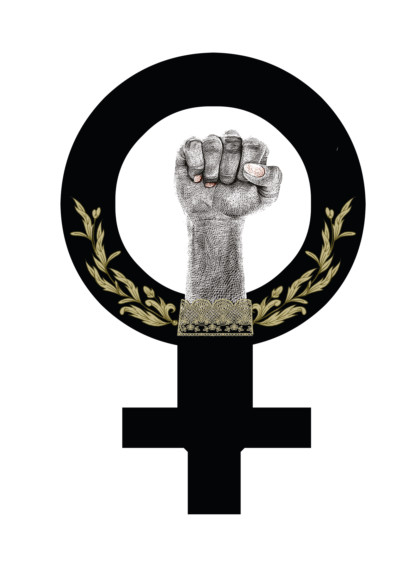When a mighty dam is about to burst, it does not just collapse in one explosive roar; it first springs a leak. A jet of water shoots from the crack, and then another crack appears and another horizontal fountain of foam; and as the whole vast curtain of masonry finally begins to tremble, the onlookers behold the valley beneath and wonder who and what will be in the path of the billions of pent-up gallons as they are released from their captivity.
That is roughly how it feels today as we watch these extraordinary feminist movements like #MeToo, and the frenzy surrounding the nomination of Judge Brett Kavanaugh to the US Supreme Court. We have a sense of the welling emotion behind these phenomena. We feel the rage at decades, centuries, millennia of complacency and injustice. We see women and men uniting to call for a change of attitudes, for a new and progressive sensibility.
It is a new call for one of the oldest and simplest and most powerful of all political ideas — the straightforward equality of all human beings in dignity and rights. And yes, we find some people looking with alarm at these boiling waters and the dam wall buckling; and some people — men and women in the comfortable bourgeois West — wonder what it means, and what harmless practices and conventions will be swept away, and whether frankly it is all a bit too much, and where will it end, and what about their sons, and so on.
But to all those who worry, to all those who wonder if it might — just might — be a teensy bit unfair on the male sex, I say forget it. We need that feminist rage. We need that dam to burst, and when it does we need the waters of righteous anger to sweep away the global injustice to women. Across the planet we have millions of women who are trafficked, sold into slavery, raped in conflict, whose suffering is systematically connived in by the men who still command the overwhelming share of political power.
There are 200 million women who have been victims of female genital mutilation. There are a further 70 million young girls — the most vulnerable age is just five years old — who are at risk of this vile and barbaric practice. Not only do the victims sometimes bleed to death; there could be no more powerful way of showing a young girl that she is a lesser person — a chattel — than in attacking this fundamental part of her identity.
So bring on that tide of holy feminist rage and let it wash this horror away. Let the dam burst, and end the injustice to women that I am afraid in some parts of the world is actually growing. Look at the figures for female illiteracy and you see a vast arc of shame — from Africa, to the Middle East and to South Asia. You don’t have the figures? Let me give you a selection, in ascending order of cruelty. In Egypt, 33 per cent of the female population cannot read or write; in India, it is 35 per cent; Congo, 44 per cent; Yemen, 45 per cent; Nigeria, 50 per cent; Pakistan, 58 per cent; Liberia, 68 per cent; Burkina Faso, 70 per cent; Benin, 73 per cent; Central African Republic, 75 per cent; Afghanistan, 75 per cent. In every one of these countries these illiterate women are prevented from achieving their potential, and in every one it is the male children who get the care, the attention and the investment — with the result that there is a massive gender imbalance. In each of them male literacy is about 20 or sometimes 30 points ahead. It is time to end this bigotry, and sweep away the casual and blase assumptions of the preponderantly male politicians who allow this injustice to go on.
Educating the girl child
Of course, you will occasionally hear the argument that there are now many Western countries where the gender imbalance is in the other direction, where women outnumber men in higher education. That is true — though there are still plenty of disparities in favour of the male sex, not least on pay.
But, in a way, that relative female success, in prosperous developed democracies, helps to make my central point. Look at the countries that struggle to contain the growth of their populations; the places that face environmental disaster of every kind — from desertification to the loss of habitat for flora and fauna. Think of the places where children die youngest, where unemployment is highest, where disease is most likely to take hold. Think about the world’s greatest breeding grounds for civil war, terrorism, corruption, radicalisation and the general alienation of young men. What do they have in common? They are all — almost without exception — the places where women face the greatest discrimination, and where society is most blatantly sexist in its distribution of education.
That is why I am utterly convinced that there is one policy that can help to address every single one of these problems, and that is to ensure that every girl in the world gets 12 years of quality education. Give a girl an education and she can contribute to the economy; she can control her fertility; above all, she can bring up her sons not to see her daughters as somehow inferior.
Now is the time to unleash the vast reserves of emotional energy revealed in these controversies about relations between the sexes, and to channel that anger — so that it expresses itself for the good of all humanity.
If you want to solve the problems of the developing world, be a feminist. And if you want to be a feminist, do it by educating girls.
— The Telegraph Group Limited, London 2018
Boris Johnson is the former UK foreign secretary.











